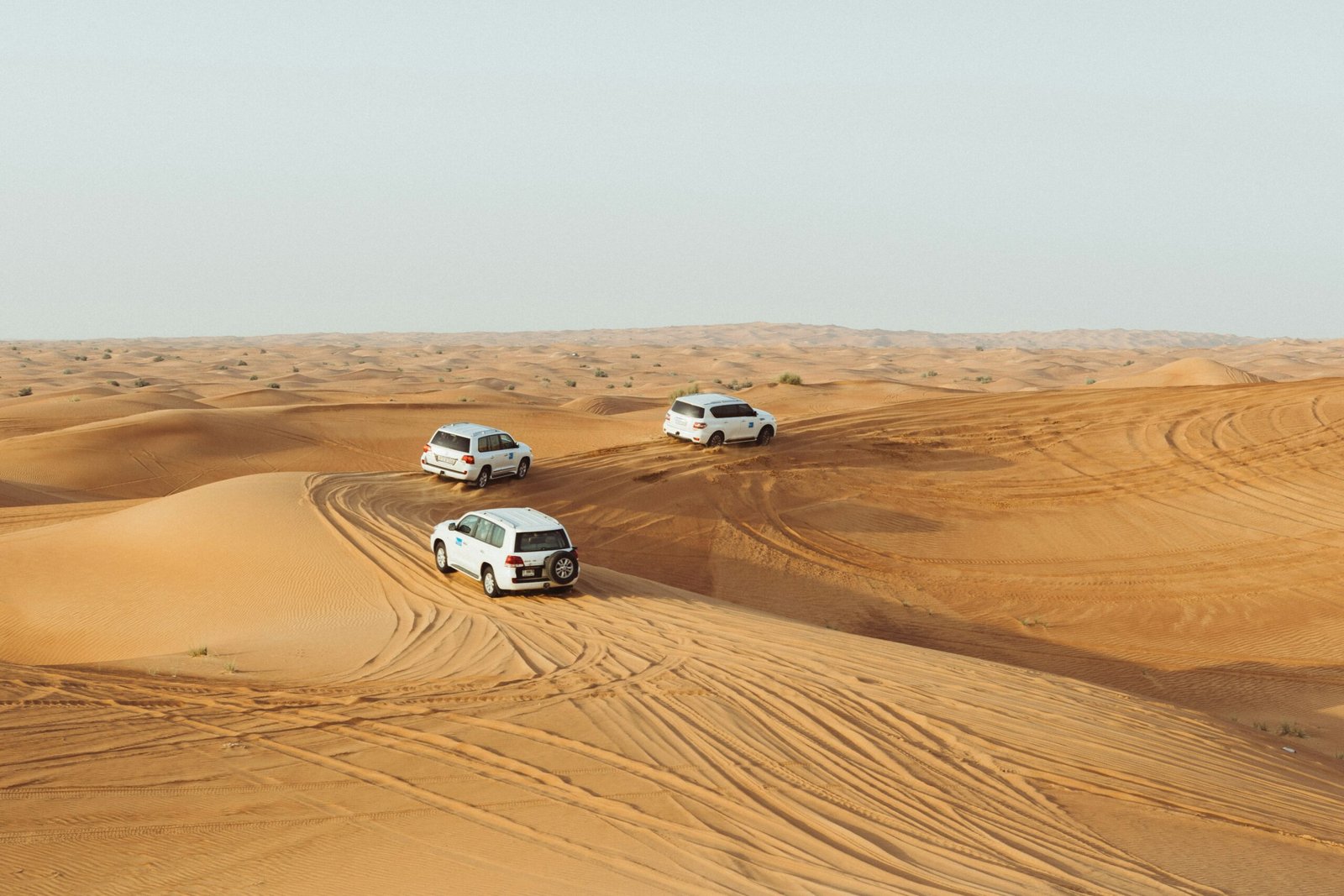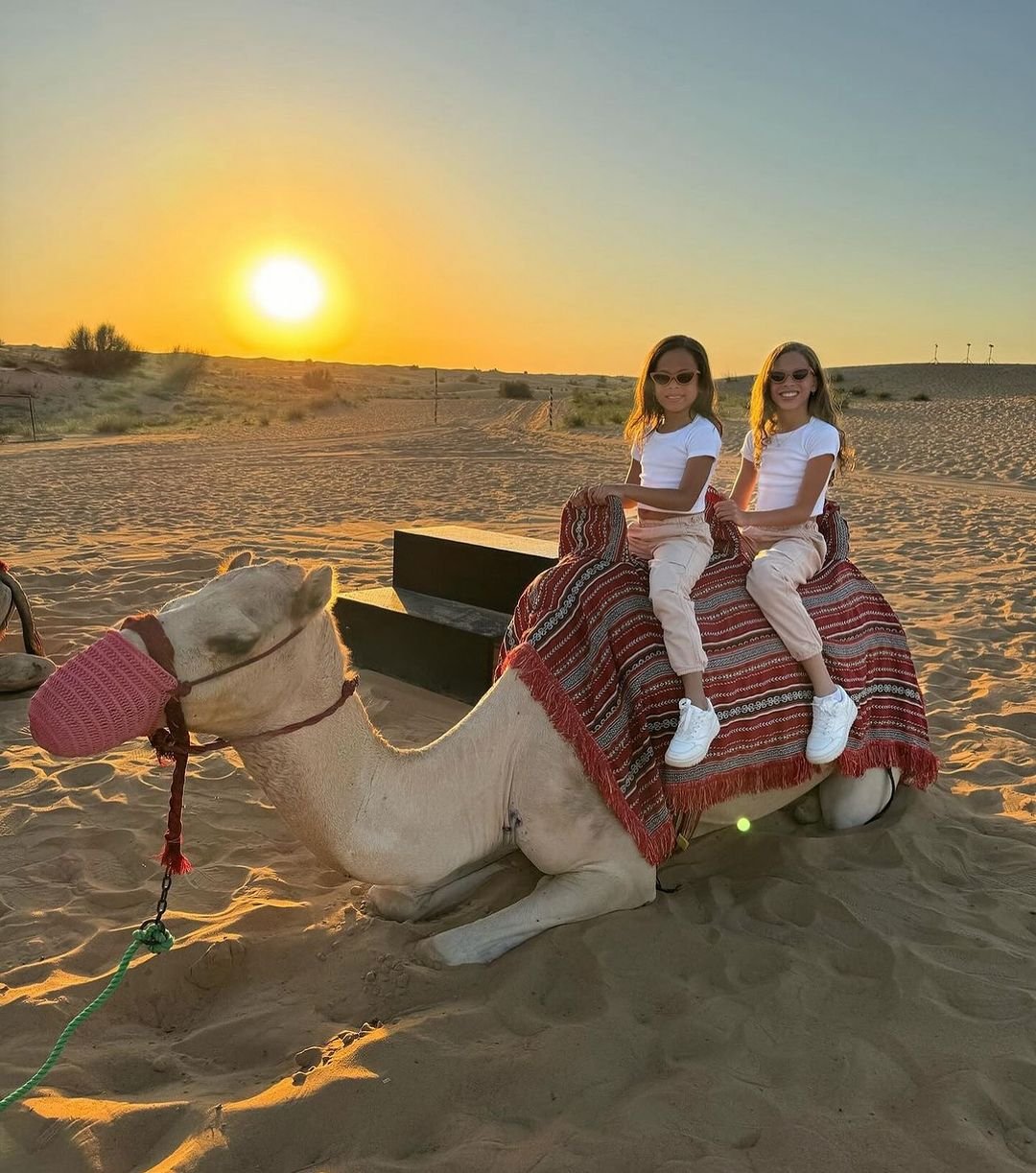
Ultimate Adventure with Our Desert Safari Dubai Packages
Dubai, a city synonymous with luxury, innovation, and breathtaking landscapes, offers an array of experiences for travelers. Among these, the

A desert safari is not only about the bashing and the views; it also gives a glance at the traditions of the Arabian desert. Besides the Bedouin hospitality, which people have long been familiar with, other cultural features of the tours also tell about the traditions of the region met during the desert safari tours. Below are some cultures/deserts you will most likely encounter in the massive City of Dubai on your Desert Safari.
Traditional Welcome and Hospitality
Greetings with Dates and Coffee
Your desert safari starts with a welcome at the site, with Arabic coffee (Gahwa) and some dates to sweeten your taste buds. This ceremony is to show the respect of guests and the host/hostess respect in return, to show eagerness for the authentic Arabe culture awaiting visitors in the desert.
Dress in Traditional Attire
Taste the flavor of the Arabic culture. If you are a man, wear a kandura; if you are a woman, wear an abaya. Most of the Dubai desert tours present the option of wearing these apparel and thus feeling like one of the desert dwellers or behaving like a bedouin.
Cultural Activities
Henna Painting
Among the most popular cultural entertainments during desert safaris is henna painting. Stellar and talented artists decorate your hands and/or feet with beautiful mehndi patterns made from natural henna. This type of artwork may not depict functional use, but it is historical and carries messages of blessings, festivity, and other esteemed events in the Arabian civilization.
Shisha Smoking
Experience a try of smoking an actual shisha pipe that is commonly referred to as a hookah. Apple or mint-flavored tobacco is placed in the bowl of the pipe and is heated; the smoke is then filtered through a water chamber and then sucked through a flexible hose. It is a relaxed and social way of spending time for locals and tourists, giving them a break in the middle of the desserts.
Falconry
Follow Bradshaw’s guide on practicing falconry, a much-valued pastime in the Arabian peninsula. Falcons are considered to symbolize power, and only the owner of a well-trained bird, a falconer, presents his bird’s aptitude in the air or hunting. The practice produces information about the history of bird prey use in Asia and Africa, and one can watch these birds in action against the backdrop of the vast skies of the desert.
Evening Entertainment Traditional Music and Dance
At night, as the hued sun disappears behind the dunes of sand, the cultural troupes take the foreground. Notably, the fellows go for a dance to recorded sounds that include Arabic lute (oud) and drums. Cultural troupes keep on performing the local folk dances, like the dynamic and vibrant Tanoura dance, dressed up with dancers in skirts, or the sensual belly dancing coupled with a breathtaking performance.

Starlit Dining Experience
Savor a magnificent spread of Arabian feasts in an environment reminiscent of a camp. Savor mouth-watering barbeque, rice specialty dishes, crisp and tasteful salads, and sumptuous desserts all within a beautiful open-air setting at night. The system of eating together makes you feel that you are with a large family, and the Arabian flavors you get to taste are so comforting.
Educational Insights
Bedouin Heritage and Traditions
During your desert safari, experts give you information about the historical background of the Bedouin people. But that’s not all: you can free yourself from the shackles of a sedentary lifestyle and never be bored with the help of palm trees and hot sand; study such helpful knowledge as an orientation in the desert with its sands and dunes; get acquainted with the particular culture, its traditions and customs, for example, camel ride Dubai, and the use of a falcon as a hunting bird, and many others. Cultural and educational information derived from these narratives enhances the historical essence of the desert and its imprint on Emirati people’s lives.
Sustainable Tourism and Cultural Preservation
Supporting Local Communities
Engagement in cultural activities involving the consumption of food and artifacts obtained during Desert Safari Holidays helps the economic growth of artisans who are part of the local culture. When selecting a reliable tour operator involved in cultural traveling and learning about sustainable uses of tourist attractions, the traveler supports the effort to preserve and share Emirati culture with new generations.
Preserving Cultural Heritage
Educational Insights
Explore the cultural background of the desert city of Dubai with knowledgeable guidance from the guides. As such, you will acquire more respect for the Bedouin chieftains and better understand their strategies for surviving in the middle of the desert and their traditions. They do this to enhance one’s experience and develop an appreciation for the customs that define the area.
Hands-on Activities
Partaking in projects that make one more culturally aware of Emirati traditions. Visit cultural centers that offer artifacts and hand-made baskets; visitors can learn some of the best traditional arts and crafts, such as beading. Such activities capture a feel of the Bedouin people’s culture, and their skill and talent are evident in the craftsmanship of the desert provisions.
Personal Reflections
Moments of Tranquility
A lot of fun and entertainment at cultural events; embrace serenity in the desert from time to time. See the shift of colors in the sky as the sun sets and descends, giving the dunes a warm hue. Enjoy the sounds from palm fonds or the calls of animals in the desert if you are lucky enough to experience such. These few breaks in the day allow relaxing and marveling at the serenity of the surroundings and the desert.
Creating Lasting Memories
Thus, people’s cultural encounters on a desert safari in Dubai are memories that still linger in their hearts. Whether I am documenting the color of henna works on my skin, the taste of authentic dishes, or the exciting moves of traditional dancing that I saw on TV, every such experience is made of a lovely and valuable fabric. Discuss these stories with friends and relatives; retain the experience of a cultural exploration in Saudi Arabia’s desert.

Conclusion
Desert safari in Dubai is not just about feeling the adrenaline rush but is a one-stop journey to the Arabian desert culture, which is still predominant in the region. Starting from the basic things such as greeting the local people with a ‘Salam or ‘Welcome,’ or wearing a long robe called a ‘Kandora,’ or even getting down to the activities like being able to paint hands with henna or even trying out a falcon, every each and everything provides, in one way or the other, details to the overall cultural hearings of the desert safari. Suppose it is the beat of folk songs and dances, savoring Middle Eastern dishes under the starlit Arab sky while learning the ways of the Bedouin from expert guides that are of interest. In that case, there is no better place to cover the sands of history than Dubai.

Dubai, a city synonymous with luxury, innovation, and breathtaking landscapes, offers an array of experiences for travelers. Among these, the

Dubai, known for its modern skyline and luxurious lifestyle, also boasts one of the most magnificent natural landscapes in the